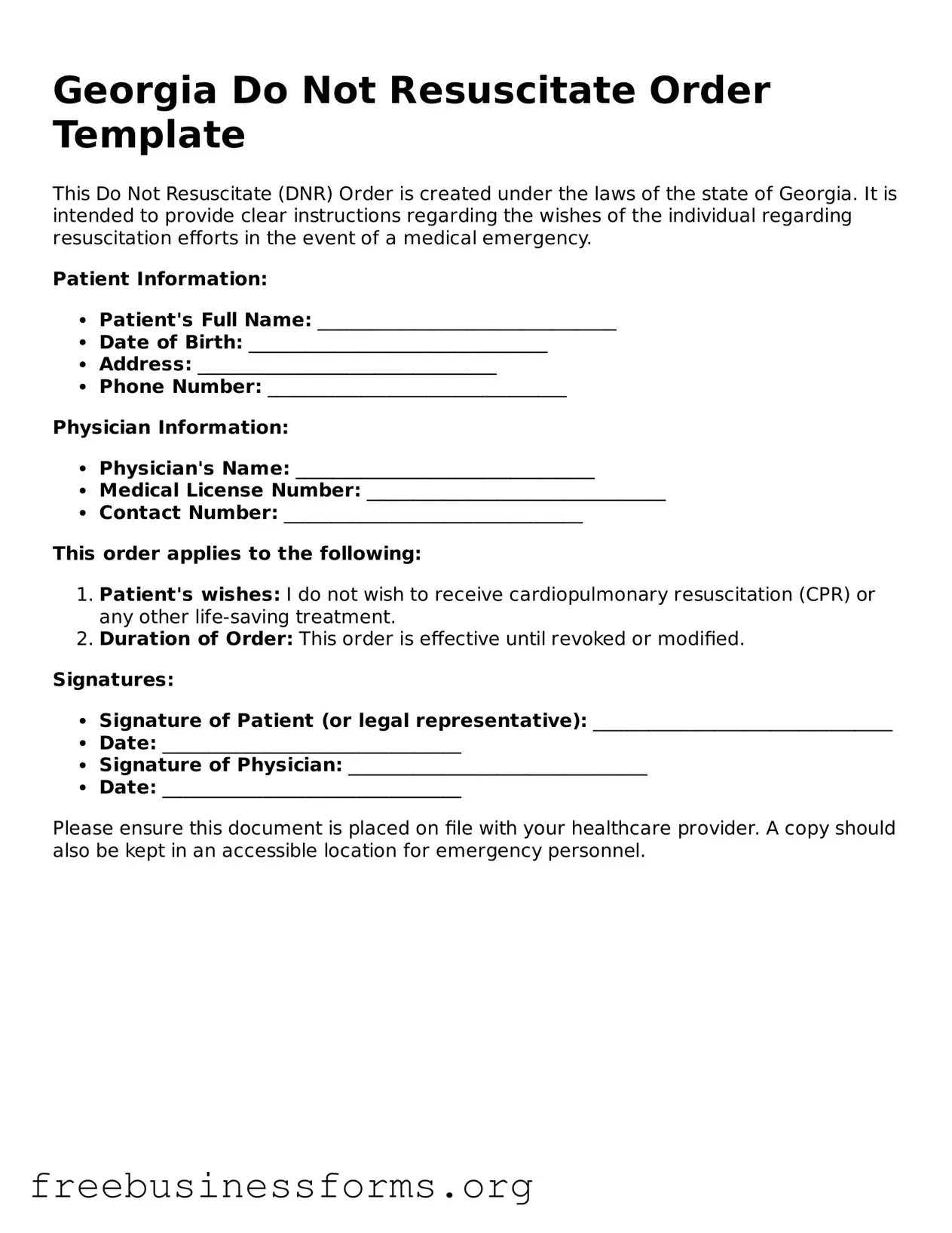Blank Do Not Resuscitate Order Template for Georgia
A Do Not Resuscitate (DNR) Order is a legal document that allows an individual to refuse life-saving medical interventions in the event of cardiac arrest or respiratory failure. In Georgia, this form is essential for ensuring that a person's healthcare wishes are respected during critical moments. Understanding the specifics of the Georgia DNR Order can help individuals make informed decisions about their end-of-life care.
Open Form Here

Blank Do Not Resuscitate Order Template for Georgia
Open Form Here

Open Form Here
or
↓ PDF File
Quickly complete this form online
Complete your Do Not Resuscitate Order online quickly — edit, save, download.